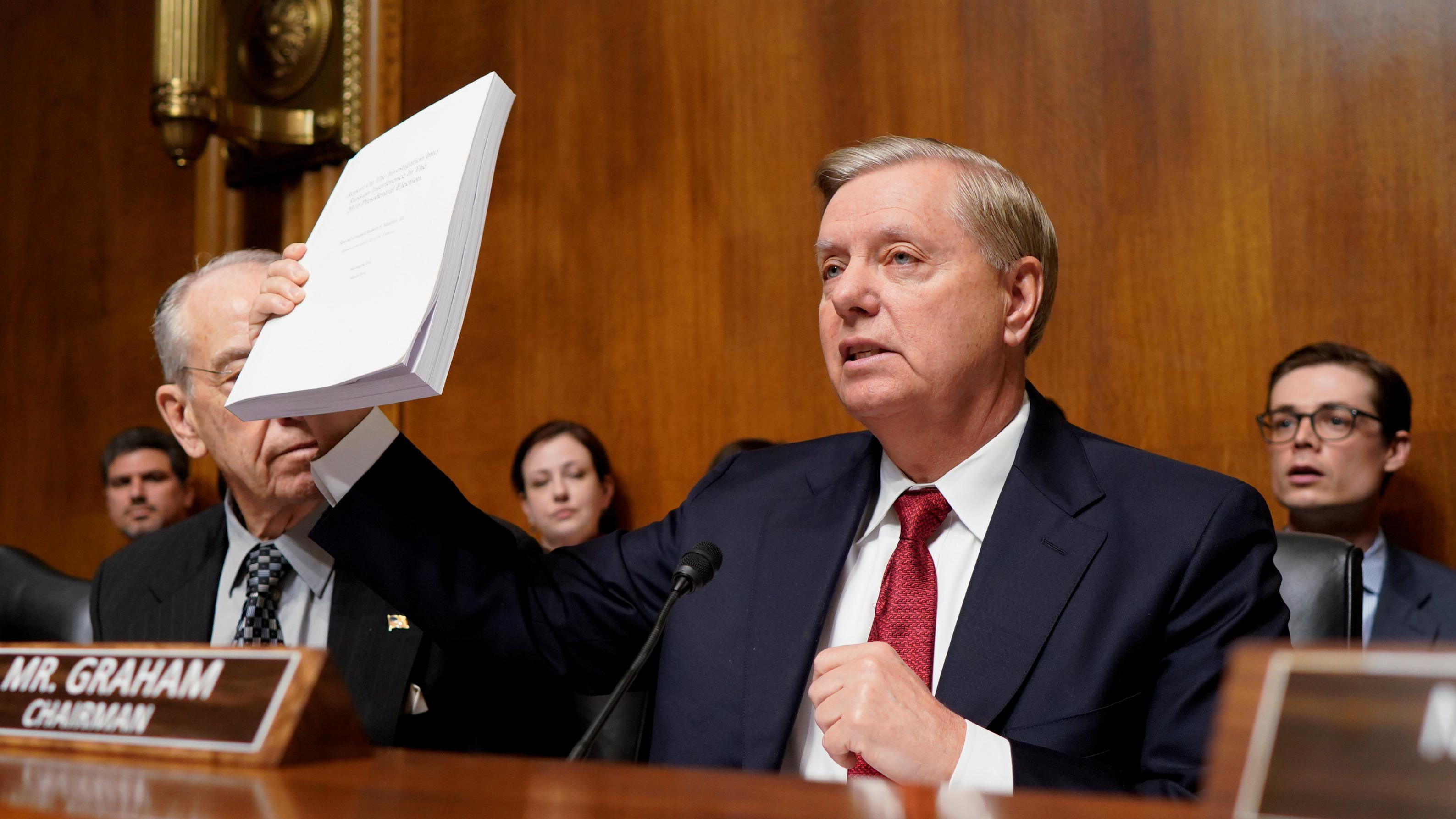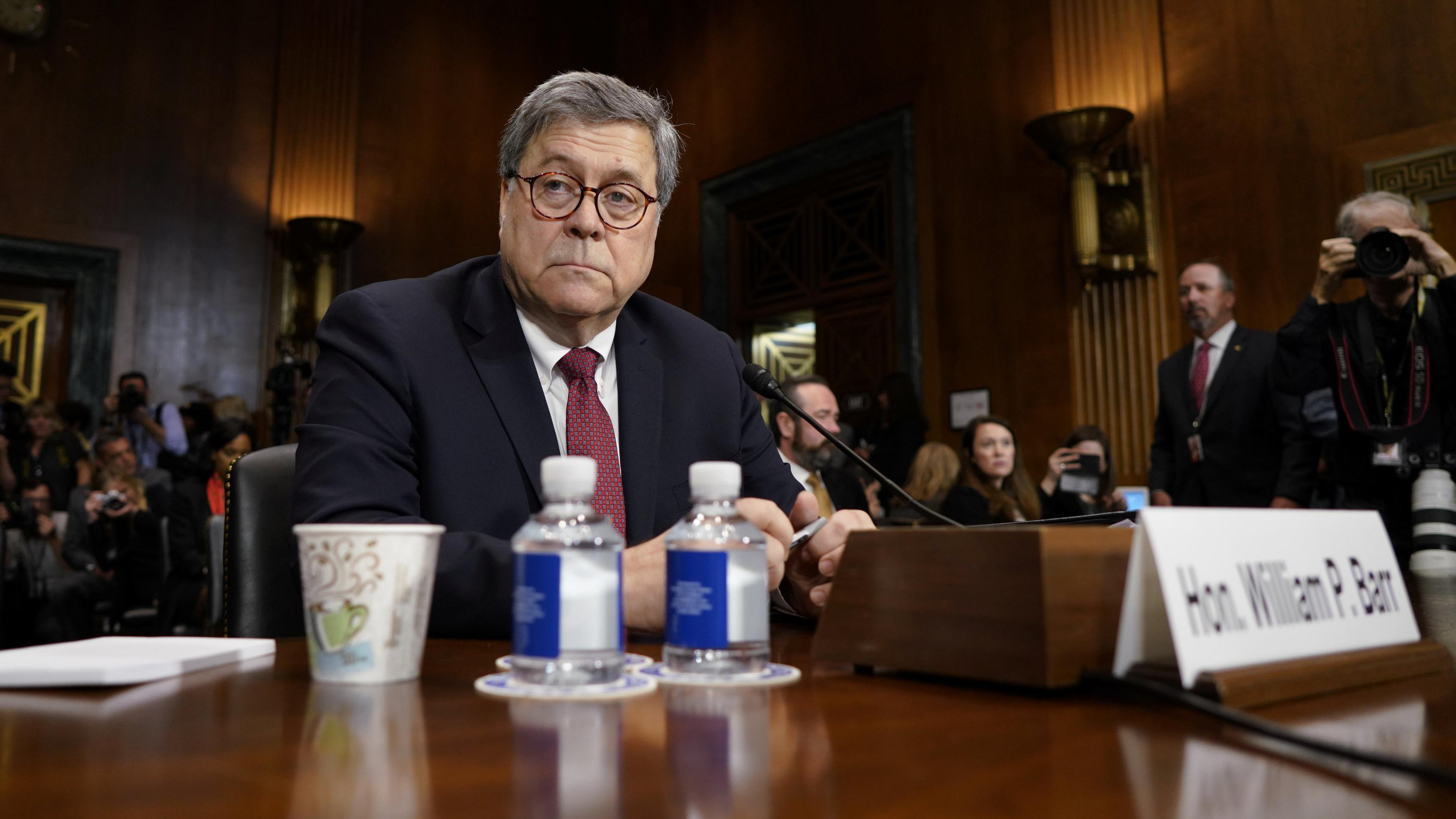
North America
23:06, 01-May-2019
U.S. Attorney General Barr in hot seat before Senate panel on Mueller report
CGTN

Attorney General William Barr appeared before a Senate panel on Wednesday for pointed questions about his handling of Special Counsel Robert Mueller's report on Russia's role in the 2016 election amid accusations he misrepresented the document's findings.
Barr defended the way he dealt with the report's release and redactions made by the Justice Department removing parts of the document to protect sensitive information in prepared testimony to Senate Judiciary Committee hearing. Democrats have accused Barr, the top U.S. law enforcement official, of trying to protect President Donald Trump.
At the outset of the hearing, Judiciary Committee Chairman Lindsey Graham, a Republican, said the report showed that Congress should focus on protecting the coming 2020 election, in which Trump is seeking re-election, from foreign interference after Russian meddling in the 2016 race.
"My takeaway from this report is we've got a lot to do to defend democracy against Russians and other bad actors," Graham said.

U.S. Attorney General William Barr arrives to testify before a Senate Judiciary Committee hearing on "the Justice Department's investigation of Russian interference with the 2016 presidential election" on Capitol Hill in Washington, U.S., May 1, 2019. /Reuters Photo
U.S. Attorney General William Barr arrives to testify before a Senate Judiciary Committee hearing on "the Justice Department's investigation of Russian interference with the 2016 presidential election" on Capitol Hill in Washington, U.S., May 1, 2019. /Reuters Photo
Democrats on the Senate-led panel are expected to grill Barr in his first appearance before lawmakers since he released the 448-page report on April 18.
"Contrary to declarations of total and complete exoneration, the special counsel's report contained substantial evidence of misconduct," said Senator Dianne Feinstein, the committee's top Democrat.
It marks first time a member of the Trump administration is testifying about the contents of Mueller's report, which detailed extensive contacts between Trump's campaign and Moscow and the campaign's expectation that it would benefit from Russia's actions.
The report also detailed a series of actions Trump took to try to impede the investigation.
Mueller concluded that the evidence was insufficient to show a criminal conspiracy. Mueller did not exonerate Trump of the crime of obstruction of justice. Barr and the Justice Department's No. 2 official, Rod Rosenstein, then determined there was insufficient evidence to establish that the president committed obstruction of justice.
Also on Wednesday, the Democratic chairman of the U.S. House Judiciary Committee said an agreement had been reached to have Mueller testify to Congress on the probe. Representative Jerry Nadler told reporters the agreement was for Mueller to testify sometime in May, but that a specific date had yet to be agreed upon.
Barr has said that he will not block Mueller from testifying.
A congressional subpoena deadline for the Justice Department to provide lawmakers with an unredacted copy of Mueller's report expired at 10 a.m. EDT (1400 GMT). It was not immediately clear whether the Justice Department complied with the subpoena, which was issued on April 19 by House Judiciary Committee Chairman Jerrold Nadler and sought underlying evidence from the Mueller probe as well as the full report.
11159km
Source(s): Reuters

SITEMAP
Copyright © 2018 CGTN. Beijing ICP prepared NO.16065310-3
Copyright © 2018 CGTN. Beijing ICP prepared NO.16065310-3